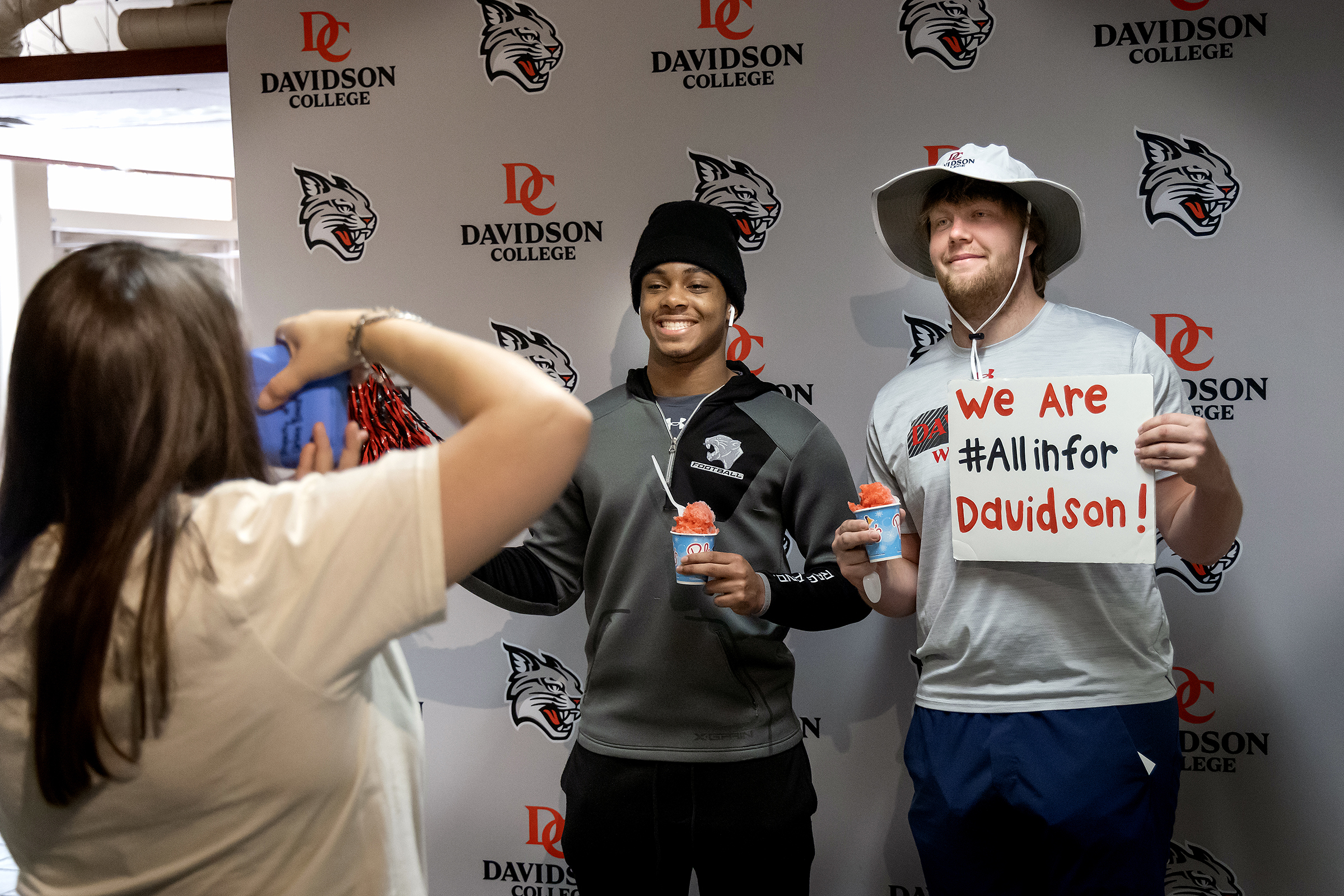Learning Requires More Than Putting a Class Online, Quillen Tells Global Forum
November 18, 2018
Technology has not yet revolutionized education in the same way that Uber transformed transportation or Amazon upended retail shopping. That's because learning is more than a two-sided transaction, Davidson College President Carol Quillen and a panel of other experts told an international audience Friday.
Their point carried some bluntness, since it was delivered at a global forum in Boston organized by edX, created by Harvard and MIT six years ago and likely the best-known open source provider of massive, open, online courses (MOOCs). In other words, edX has been trying to do what the panel said remained unaccomplished.
"We're delivering content, but you really want to create an opportunity for a range of [learning] experiences," Quillen told the group.
She emphasized that such a goal requires more than just putting a good college course online.
"The quality of the experience," she said, "does not derive solely from the quality of the content."
An effective technology platform in higher education, she said, succeeds through enabling relationships, interactions and experiences that are not possible in other contexts, rather than just delivering the material from a traditional class. New technologies can help provide a range of experiences that ensure all learners get the value they are looking for within a broader community who are seeking education. Quillen said Davidson, an edX member, has offered courses that created communities whose value to each other survived long past the course.
"Even with Uber, people are beginning to pay attention to the quality of the experience," she said, "not just getting from here to there."
The edX Global Forum drew participants from 125 colleges and universities, nonprofits and businesses from more than 30 nations representing every continent. Quillen was joined on the panel looking at technology platforms by the president of edX; the CEO of Xuetang, China's first and largest provider of MOOCs; a venture capital executive whose firm invests in education platforms; a Boston University professor and expert on such platforms; and Harvard's vice provost for advances in Learning.
The Harvard vice provost, Bharat Anand, also helped create Harvard Business School's digital initiative, HBX. He echoed some of Quillen's points, saying that Harvard and others have placed impressive courses and content on edX, but that means they are addressing the supply side of the equation. The creators and operators of technology platforms in higher ed have to pay more attention to learners' aspirations, motivation and commitment. Their needs are different, and they are all looking for a platform that works for them.
"The fact that we put free courses out there doesn't mean they will enroll," Anand said. "The demand side is something where we could spend a lot more time."
The panel agreed that edX was a valuable first step, and, now, technology platforms for higher education must push farther. Xuetang's CEO, Li Chao, for example, called for a quality assurance mechanism.
Overall the group advocated a building approach.
Nick Grossman, an executive with the venture capital firm Union Square Ventures, said his firm invests in platforms that have a clearly defined focus, such as Duolingo, a free application that is arguably the most popular way to learn a second language. That creates the opportunity to layer up connections to bigger, more complex learning opportunities.
Quillen highlighted that cost isn't the only barrier to equitable access to education, so free, online courses won't create equal educational opportunity. Other structural problems in society perpetuate inequality and make access to education more difficult, she said, suggesting that building off of edX itself, and other platforms, can help meet that challenge.
"Can we use the incredible information that you're gathering from this noble experiment," Quillen said, "to address some of these other challenges to making these courses generally accessible?"



